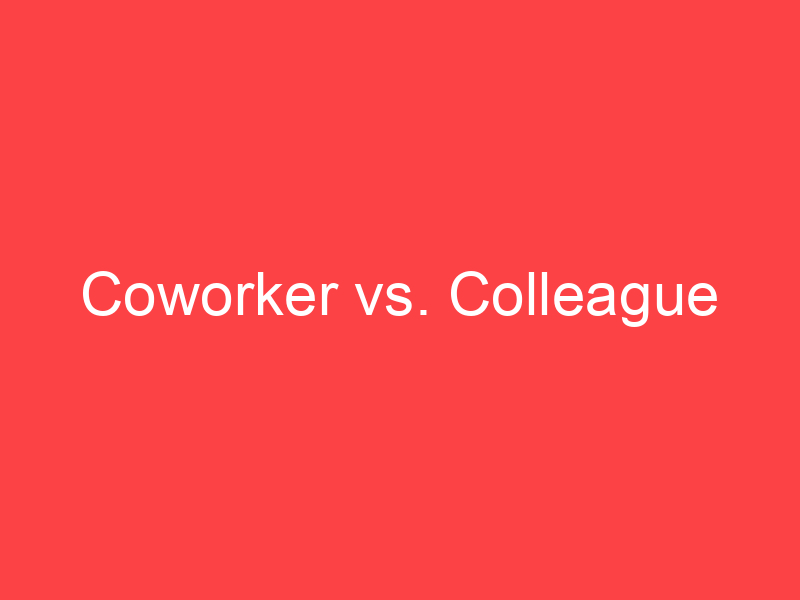-
Coworker
Employment is a relationship between two parties, usually based on a contract where work is paid for, where one party, which may be a corporation, for profit, not-for-profit organization, co-operative or other entity is the employer and the other is the employee. Employees work in return for payment, which may be in the form of an hourly wage, by piecework or an annual salary, depending on the type of work an employee does or which sector she or he is working in. Employees in some fields or sectors may receive gratuities, bonus payment or stock options. In some types of employment, employees may receive benefits in addition to payment. Benefits can include health insurance, housing, disability insurance or use of a gym. Employment is typically governed by employment laws, regulations or legal contracts.
-
Colleague
Collegiality is the relationship between colleagues.
Colleagues are those explicitly united in a common purpose and respecting each other’s abilities to work toward that purpose. A colleague is an associate in a profession or in a civil or ecclesiastical office.
Thus, the word collegiality can connote respect for another’s commitment to the common purpose and ability to work toward it. In a narrower sense, members of the faculty of a university or college are each other’s colleagues; very often the word is taken to mean that. Sometimes colleague is taken to mean a fellow member of the same profession. The word college is sometimes used in a broad sense to mean a group of colleagues united in a common purpose, and used in proper names, such as Electoral College, College of Cardinals, and College of Pontiffs.
Sociologists of organizations use the word collegiality in a technical sense, to create a contrast with the concept of bureaucracy. Classical authors such as Max Weber consider collegiality as an organizational device used by autocrats to prevent experts and professionals from challenging monocratic and sometimes arbitrary powers. More recently, authors such as Eliot Freidson (USA), Malcolm Waters (Australia) and Emmanuel Lazega (France) have shown that collegiality can now be understood as a full-fledged organizational form. This is especially useful to account for coordination in knowledge intensive organizations in which interdependent members jointly perform non routine tasks – an increasingly frequent form of coordination in knowledge economies. A specific social discipline comes attached to this organizational form, a discipline described in terms of niche seeking, status competition, lateral control, and power among peers in corporate law partnerships, in dioceses, in scientific laboratories, etc. This view of collegiality is obviously very different from the ideology of collegiality stressing mainly trust and sharing in the collegium.
-
Coworker (noun)
Somebody with whom one works; a companion or workmate.
“He heard from a coworker that the company planned to merge those departments.”
-
Colleague (noun)
A fellow member of a profession, staff, academic faculty or other organization; an associate.
-
Colleague (verb)
To unite or associate with another or with others.
“Young Fortinbras,/ Holding a weak supposal of our worth/…Colleagued with the dream of his advantage,/…hath not failed to pester us with message/ Importing the surrender of those lands/Lost by his father. – Hamlet (Act I, Scene 2)”

